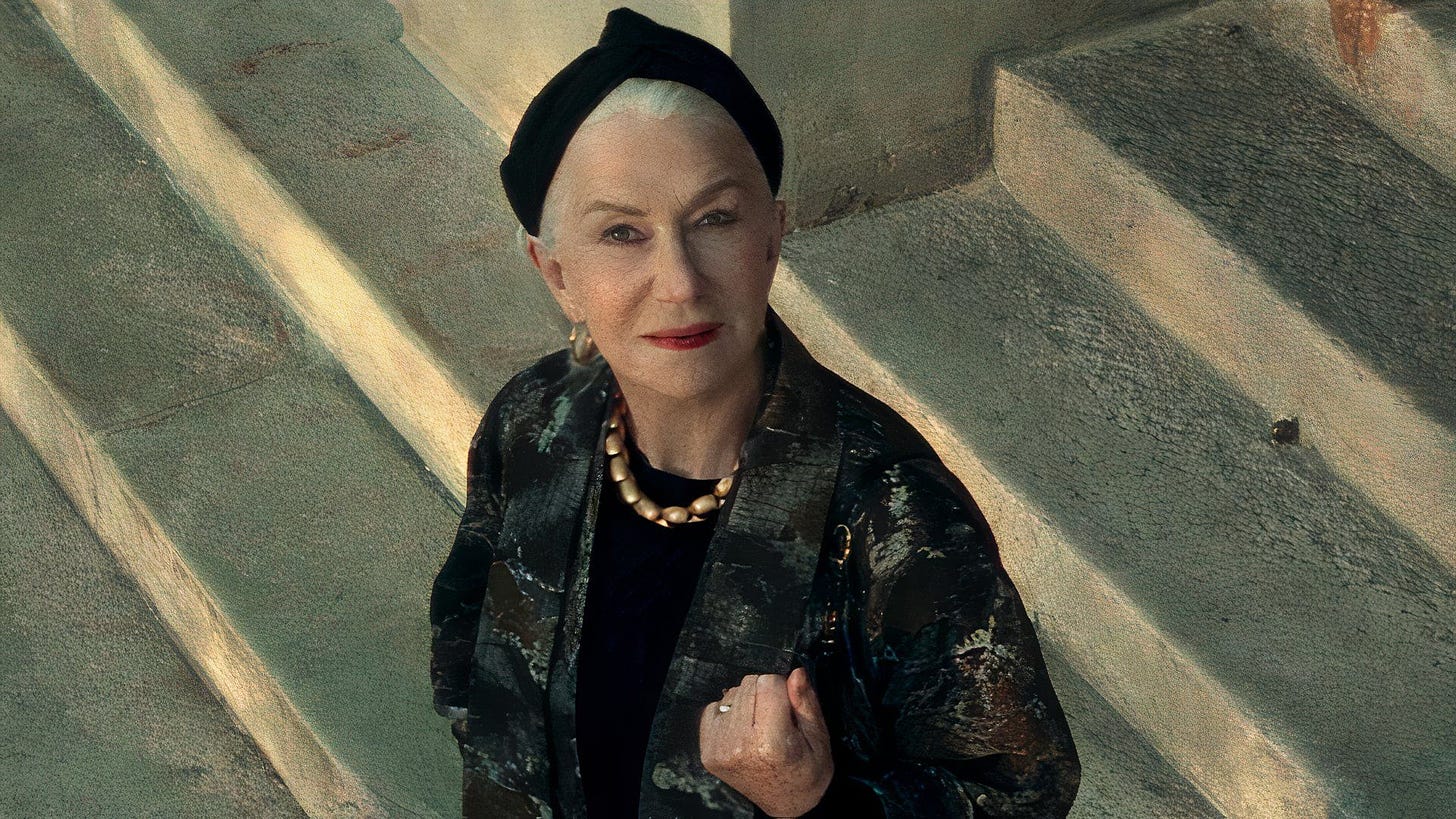I’ve lost count of how many times White Bird kept getting pushed back and pushed back over the last two years. It happened so many times that I thought it would drop off the calendar altogether like some other movies we can mention, but it’s finally made its way to the big screen for our viewing pleasure and thoughtful consideration.
Was the long wait to see White Bird worth it? Absolutely. One minor misstep notwithstanding, this delightful movie is not only well-crafted and has a great story, but there’s lots to take in.
It all starts when Grand-mere Sara comes for a visit from Paris and ends up telling her grandson, the jaded and somewhat chastened Julian about her experiences in occupied France during World War Two. White Bird has been called both a sequel and a prequel, as it follows the highly successful 2017 film, Wonder, in which Julian was expelled from school for tormenting a little boy named Auggie. Now that he’s at a new school, he figures it’s best to keep his head down and just fit in.
Grand-mere isn’t satisfied with that. She enjoyed a fairly normal childhood in her little French village, barely noticing the Nazis in the streets and Nazi flags on the buildings. She spends her days drawing in her notebook and crushing on the smoldering Vincent, an older boy who despises her because she’s Jewish.
When there’s a raid on the school and all the Jewish children are taken away, Sara is surprised to get help from Julien Beaumier, who’s been given the nickname, “Crab” at school because he totters around with a limp that he’s had since his bout with polio. Julien leads Sara through the sewer to his family’s farm and hides her in the barn. Sara’s never been particularly nice to him, but she accepts his help because she has no choice. Where are Sara’s parents? She doesn’t know.
Although she can’t leave the barn, the Beaumiers make Sara part of the family, and for over a year they escape discovery. Julien and Sara take wild trips to various locales in their imagination, creating their own kind of escape. Paris, the African tundra, New York City. It’s all theirs for the taking.
Unfortunately, the Nazis close in, and not everyone makes it out alive, but Sara isn’t without further help, always from surprising sources, not to mention, there’s a white bird who watches over her.
OK. White Bird is a fantastic movie. Although it’s based on a novel by R.J. Palacio, it’s both meticulously accurate in its portrayal of the Nazis and kept mostly as a teenager would have seen the war, not unlike what Anne Frank wrote about in her diary. At first, it was as if nothing had changed. The Nazis were there, but they were initially easy to ignore. Restrictions and other troubles crept up slowly, and for Sara, the first inkling she has that bad times are coming is when she goes to a bakery to buy a croissant and the sign on the door says, “No Jews allowed.”
There isn’t a ton of exposition about what the occupation was like beyond Grand-mere’s narration. Events happen, their intent is clear, and the movie leaves it at that. The main focus is Sara and her story, but then again, we never forget the sense of impending doom.
One of the things that amazed me was the way Julien was able to move around the village relatively freely despite his disability, as Nazis were known for targeting disabled people. In certain death camps, the disabled were often subjected to horrible torture that the Nazis called “medical experiments,” if they weren’t murdered on arrival. The few survivors of these brutal acts were often unwilling to talk about what they experienced, and with good reason.
In all, White Bird is both an uplifting and sobering movie. It pays tribute to those who helped the Jews in occupied France while also showing the resiliency of good people, especially imaginative teenagers who seek escape. Most importantly, it asks what we would do when people are in trouble. Will we aid and abet those who cause the trouble? Will we pretend nothing is happening? Or will we step into the fray and risk it all?
That said, the movie’s only weak spot is when it shows present-day Julien joining a social justice club at school. We don’t know what they’re about specifically, which gives the movie a shade of unfortunate ambiguity. Not every cause is just. Some causes create more problems than they solve. For the movie to show Julien doing something for the sake of doing something undermines the very real desire to eradicate evil that motivated those who resisted the Nazis.
Still, White Bird is a good starting point for contemplation and discussion. We need more of that, especially right now.
White Bird is currently in theaters. Rated PG-13.
My grade: B+
Principal Cast: Ariella Glaser, Orlando Schwerdt, Gillian Anderson, Helen Mirren, Bryce Ghesar, Priya Ghotane, Teagan Booth, Kevan Van Thompson, Laura Hudeckova, Ishai Golan, Olivia Ross, Mia Kadlecova, Selma Kaymacki, Jem Matthews, Jordan Cramond, Yelisay Kazakevich, Vladimir Javorsky, Cyril Dobry.
Directed by Mark Forster.
Written by Mark Bomback and R.C. Palacio (novel).





My wife had Dame Helen Mirren on her show on National Poetry Day, and Helen read two powerful poems...not many daytime talk shows would respect the art this way - and she is charming, funny and gracious!